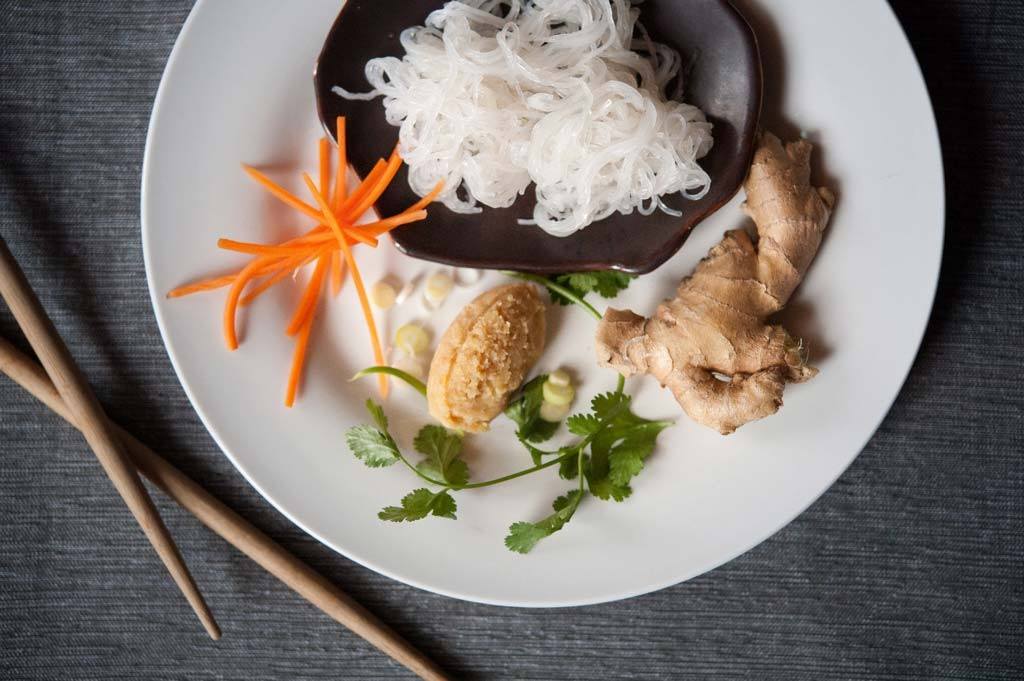The ancient fruit is the symbol of Persephone, goddess of spring and daughter of the goddess of the harvest, Demeter. When Hades captured Persephone and carried her down to share his underworld throne, she made the mistake of eating six pomegranate seeds and was thus condemned to spend six months of the year in his dark world. At the ancient October Festival of Demeter, eating of pomegranate seeds was an important feature of the rites. The pomegranate, with its multitude of seeds, has long been a symbol of fertility and abundance.
I remember my first pomegranate vividly. I was maybe six years old, dressed as a fairy princess for Halloween. A man with a movie camera set up to capture all the trick-or-treaters was handing out pomegranates and when we got home, my mother slipped mine out of sight, reluctant, I’m sure, to introduce me to such a messy thing. Much to her chagrin, I retrieved its hiding spot on top of the refrigerator and was more intrigued by the strangely beautiful fruit, heavy and leathery in the hand, than I was by all the candy. With my first bite, I was captured, as much a prisoner as Persephone, and thus began a long history of red-stained clothes and discolored fingers. It’s all been worth it.
I remember the longing I felt for foggy mornings, a glimpse of the Golden Gate Bridge, some good sourdough bread.
Pomegranates eventually became part of my own private rituals in ways I never anticipated, like during the second, and last, summer I spent in San Diego. Family circumstances required me to return to the place of my birth and I was not too happy about it. It was far too flat, too hot, too far from San Francisco, and something about the light was wrong. I remember the longing I felt for foggy mornings, a glimpse of the Golden Gate Bridge, some good sourdough bread. My most vivid memories, though, are of the events we all watched on TV that summer, the summer of 1968. That time is christened with the scents and tastes of what I ate and I cannot see a pomegranate without being transported back to the 1968 Democratic Convention, its police riots, and its tribute to Robert Kennedy.
My career in politics ended that summer, shortly after it began, when Robert Kennedy was killed the day after I–with my infant daughter Gina in my arms–got to meet him. Too young to vote and profoundly disillusioned, I sat glued to my TV during the convention wondering what, if anything, could be salvaged out of such a tragic mess. Not much, we came to realize, but all that’s passed now except for the evocative sight of a pomegranate in the fall.
Looking strangely like blood, pomegranate juice ran slowly down my arms and I was almost content, in a very odd way.
It was too hot that summer and early fall in San Diego, my spirits were low, and life took on the shape of ritual, the same events repeating themselves, giving some vague shape and substance to my life. Every evening I’d take a cool shower, quickly broil two lamb chops, very rare, and cut two pomegranates in half. It was so hot that I wouldn’t dry off after my shower but simply shake off a bit of water, sit down on the floor in front of TV and eat my wonderful dinner while the evening’s events unfolded. I watched with a strange, detached astonishment as the police bashed the heads of my enraged peer group. Looking strangely like blood, pomegranate juice ran slowly down my arms and I was almost content, in a very odd way. When the convention closed for the night, I’d get back into the shower to rinse off the pomegranate juice I’d managed to get from head to toe.
The appeal of the pomegranate remains as primitive, as visceral, a pleasure as it was then. I saw the season’s first recently and the sight of it actually gave me chills. The weather had been very hot for several days running and I’d awakened very early. My bedroom was still warm, but as I stepped out onto the porch I was struck by the sharp chill in the air, a particular type of coldness one never feels in the middle of summer no matter how far the temperature drops. It is what I feel every year when the light turns from its bright summer glow to its autumn gold, but I usually see the change before I feel it. Winter will be early this year, I thought to myself, and then went on to other things. A few hours later, I was standing in Berkeley’s Monterey Market and there in front of me was a huge bin of pomegranates. I jumped, startled, like I’d seen a ghost, and I was glad there was no one nearby. I’ve always said that as soon as I feel that chill, pomegranates appear in the stores and suddenly I turned and there they were, beacons of the mornings’ prescient chill.
